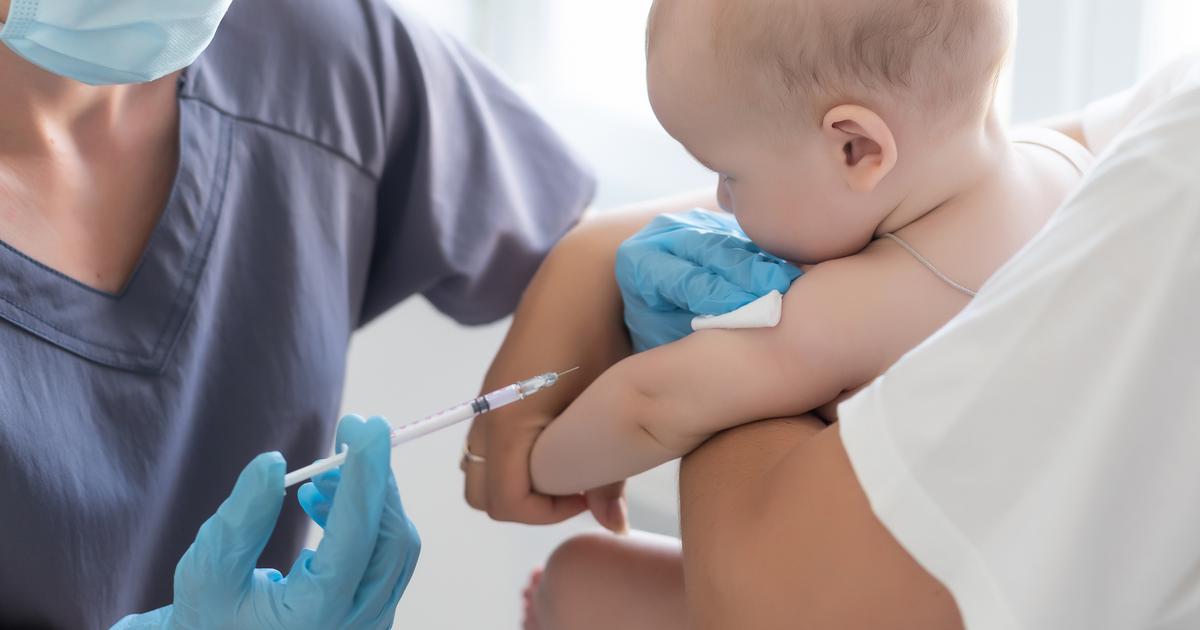See here the keys to protect children from covid-19 0:27
Editor's Note:
There are few risk-free activities during the covid-19 pandemic, but there are ways to mitigate the risks. Fully vaccinated people are, of course, at a much lower risk of contracting and spreading the coronavirus than people who have not been vaccinated. CNN Medical Analyst Dr. Leana Wen advises deciding your activities with that in mind. This article has been updated to reflect the new guidance from the US Centers for Disease Control and Prevention on the use of masks issued on August 13.
(CNN) -
As more people get vaccinated against COVID-19 and the National Football League season begins on September 9, you may wonder if the time has finally come to swap your couch for a seat in the stadium.
The factors that made pre-pandemic sporting events fun - excited people huddling, cheering, talking, eating, drinking, and sometimes doing all of these things indoors - make gaming potentially problematic now.
Ignoring the risks associated with these activities could leave us "stuck in outbreak mode," Dr. Anthony Fauci, director of the US National Institute of Allergy and Infectious Diseases, said on CNN's "New Day" on September 7.
The coronavirus spreads when an infected person coughs or sneezes and others breathe in those droplets, or when the virus accumulates or flows through the air. It is also possible to contract the virus from surfaces, but this is not a primary mode of transmission, the US Centers for Disease Control and Prevention (CDC) have said. The level of safety or risk may depend in part on your vaccination status, since unvaccinated people remain unprotected against the coronavirus.
Because of the way the coronavirus can spread, indoor events are more risky than outdoor events, so it's important to "make sure it's completely an outdoor type of event," said Krystal Pollitt. , assistant professor of epidemiology at Yale School of the Public and assistant and health professor in chemical and environmental engineering at Yale School of Engineering and Applied Sciences.
ANALYSIS |
A new conflict over covid-19: how to treat the unvaccinated
The CDC recommends that unvaccinated people stay away from large groups with other people outside their home.
advertising
Of course, the safest way to enjoy the great game is by watching it on television or online.
But if you choose to be there in person, here's what you need to know about planning and attending sporting events, regardless of your vaccination status.
Preparing for a sporting event in person
Before going to a sporting event, find out the number of COVID-19 cases both where you live and where the event is taking place.
"The greater the transmission of covid-19 in the community, the greater the risk of transmission" at the event, the CDC said.
Call the venue or check its website to see if the venue follows CDC guidelines for sporting events or large gatherings, or a similar guide.
Some of these safety measures include holding the event outdoors, requiring all attendees to wear masks, regular cleaning, and locked seats or visual cues for physical distancing, the CDC has said.
A higher risk event would be if it occurs indoors, if most, but not all, people wear masks, and if the event uses only a couple of strategies to reduce risk.
Some venues may require attendees to provide proof of a negative coronavirus test done a few days prior or a full vaccination.
Indoor events should be well ventilated, said Dr. Ada Stewart, a family physician at Cooperative Health in Columbia, South Carolina, and president of the American Academy of Family Physicians in April. Signs of a well-ventilated room include the ability to run fans and open windows or doors. High ceilings and portable air purifiers that have HEPA (High Efficiency Particulate Air) filters also help.
If informed employees are unsure of the quality of ventilation, other measures are especially important, such as limiting the number of attendees, requiring people from different households to stay at least 2 meters apart, and asking people to constantly use More expensive.
The CDC has recommended avoiding large gatherings that do not follow these precautions.
If you want to be more ambitious in protecting yourself and evaluating actual ventilation yourself, you can wear an inexpensive carbon dioxide monitor to track concentration levels and changes over time, Pollitt said.
Levels above 800 to 1,000 parts per million would be concerning, Pollitt added, as that would mean the air is not circulating well enough.
Schools wouldn't see a big increase in COVID-19 cases if they follow these measures, Fauci says
What to do on game day
Pack hand sanitizer and more than enough masks.
To reduce the risk of infection with the delta variant, fully vaccinated people should wear masks in crowded outdoor and enclosed public spaces in areas of substantial or high transmission, and if they or their housemates are immunosuppressed or at increased risk of covid -19 severe, the CDC has recommended.
Unvaccinated people should wear masks in these settings, regardless of the level of transmission of the coronavirus.
CNN medical analyst Dr. Leana Wen suggested wearing a surgical mask with at least three layers.
Venues should sanitize common and seating areas at least once a day or between games, the CDC has recommended, but bring sanitizing wipes to use if necessary.
Eat ahead of time "so your chance of not having the mask (on) is limited," Stewart said in April.
If you don't eat sooner, there are two concerns, said Wen, who is also an emergency physician and visiting professor of health policy and administration at the George Washington University Milken Institute School of Public Health. "One is people who take off their masks to eat if they are very close to each other," Wen said. "If everyone is well spaced and outdoors, the risk is very low. But if they are close together and take off their masks to eat, in close proximity or indoors, the risk increases."
The other is "people gathered," Wen added.
"Probably to get into (the game), you have to queue. That's something that's hard to avoid. But you can avoid the food kiosks during rush hours. So, bring your own drinks if you can. You don't necessarily have to go. to a kiosk just to buy water if you need it. "
You can also pack your own snacks, but consider packing something that doesn't take long to eat.
"Eating in the parking lot is another one of those time-honored traditions," but don't do it with people outside your home, said Regina Davis Moss, associate executive director of health policy and practice for the American Public Health Association.
13 Miami-Dade school employees have died from covid-19 since mid-August
In all areas, unvaccinated, immunosuppressed, and other vulnerable people should try to stay at least 2 meters away from others as much as possible.
To reduce your contact with frequently touched surfaces, opt for contactless payment when available.
If you must go to the bathroom or buy food, try to go during off-peak hours rather than during halftime or breaks.
And look for other ways to reduce risk when shopping for food, Davis Moss said.
When sourcing mustard for your hot dog, for example, be sure to use hand sanitizer before and after, as seasonings "are surfaces that a lot of people are going to touch."
Seasoning packets are safer.
Not yelling for a goal or bad play can be difficult, but the louder you speak, the greater the chances that you will produce virus-carrying drops or sprays if you are infected, even if you are wearing a mask.
Try to keep your voice at maximum normal volume, Pollitt said.
Lastly, you can leave a bit before the game ends to avoid the crowds while you get to the parking lot or transportation.
Covid-19













